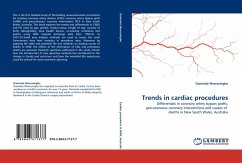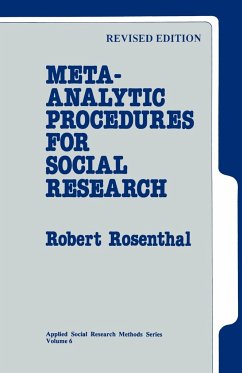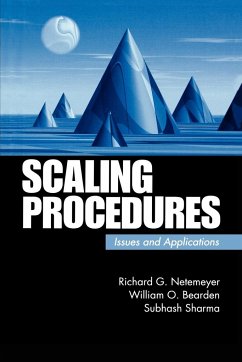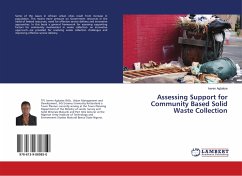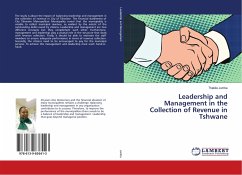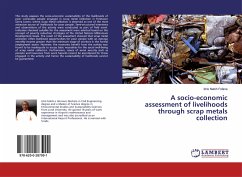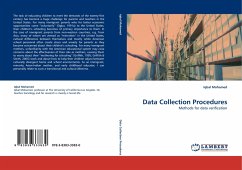
Data Collection Procedures
Methods for data verification
Versandkostenfrei!
Versandfertig in 6-10 Tagen
52,99 €
inkl. MwSt.

PAYBACK Punkte
26 °P sammeln!
The task of educating children to meet the demands of the twenty-first century has become a huge challenge for parents and teachers in the United States. For many immigrant parents who for better economic opportunities come voluntarily (Ogbu, 1991a) to the United States, their children s schooling becomes of primary importance to them. In the case of immigrant parents from non-western countries, e.g. from Asia, many of whom are viewed as minorities in the United States, cultural differences between themselves and mostly white American school personnel often create stress and anxiety for parent...
The task of educating children to meet the demands of the twenty-first century has become a huge challenge for parents and teachers in the United States. For many immigrant parents who for better economic opportunities come voluntarily (Ogbu, 1991a) to the United States, their children s schooling becomes of primary importance to them. In the case of immigrant parents from non-western countries, e.g. from Asia, many of whom are viewed as minorities in the United States, cultural differences between themselves and mostly white American school personnel often create stress and anxiety for parents as they become concerned about their children s schooling. For many immigrant mothers, unfamiliarity with the American educational system may raise concerns about the effectiveness of their role as mothers, causing them to worry about their mothering for schooling (Griffith, 1995; Griffith & Smith, 2005) work and about how to help their children adjust between culturally divergent home and school environments. As an immigrant, minority Asian-Indian mother, and early childhood educator, I can personally relate to such a transitional and cultural dilemma.




